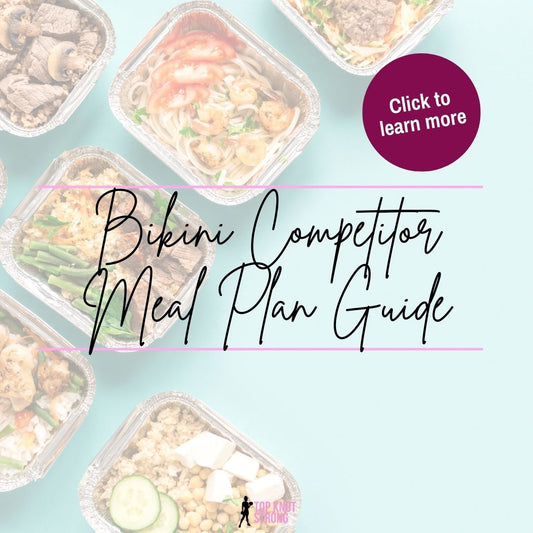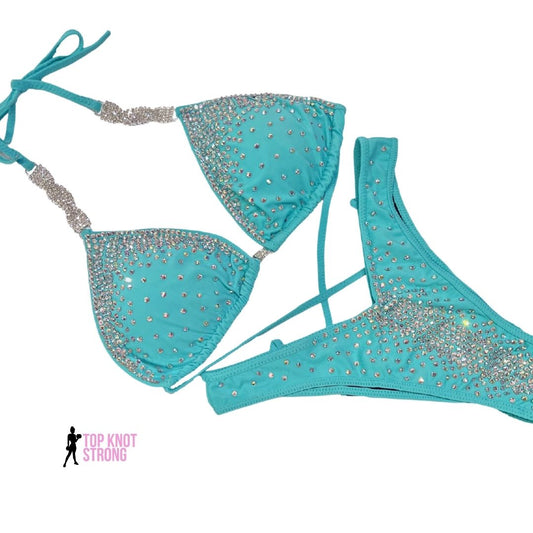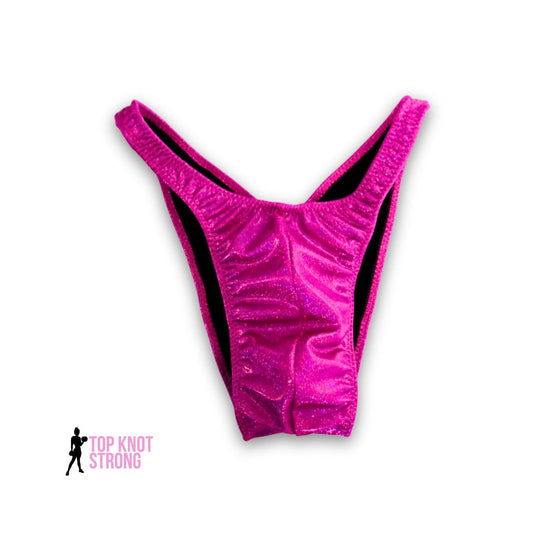I have been often asked how I would create a meal plan for myself that I could prep and then stick to.
I will say though that it was not always that I would stick to it and I learned a lot through trial and error to find what worked for me. So I want to share with you how you can create a meal plan that will work for you.
At the end of the day we are all different, and what works for me, my schedule, my goals, and my taste buds may not work for you.

The Basics
Creating a healthy meal plan means that you are planning out what you are eating before hand so that you can make sure that you reach your goals.
Each day you are burning calories all day long, but of course you burn more when you add exercise to your daily routine.
When it comes to losing or gaining:
If you want to lose weight, you need to be in a slight caloric deficit.
If you want to gain weight, you need to be in a slight caloric surplus.
What to Consider
A healthy meal plan has the calories and macro targets needed to reach your goals of toning and building lean muscle. Which we will touch on later.
You can eat unhealthy and still hit your calorie and macro targets, but people often find that they still feel hungry at the end of the day. This is because your body is craving healthy nutrients that you are not getting unless you are eating healthier foods.
Plus, wouldn't you rather eat more and feel more full during your day with more energy rather than sluggish and left hungry?
Having a meal plan that includes healthier foods also means that you will be digesting better and reach your goals easier.
Calories & Macros
I briefly touched on this, but now I would like to go a little more in depth with it.
Calories are what you are burning throughout your entire day whether you are awake or sleeping. While macros are your targets for what amount of protein, carbs, and healthy fats you have through your day in your meals.
The most simple way to calculate your calories for losing weight:
- Little to no exercise: (current body weight in pounds) X 10 - 200 = caloric target
- Moderate exercise 2-3 times per week: (current body weight in pounds) X 11 - 200 = caloric target
- Active 4-6 times per week: (current body weight in pounds) X 12 - 200 = caloric target
The most simple way to calculate your calories for gaining weight:
- Little to no exercise: (current body weight in pounds) X 10 + 100 = caloric target
- Moderate exercise 2-3 times per week: (current body weight in pounds) X 11 + 100 = caloric target
- Active 4-6 times per week: (current body weight in pounds) X 12 + 100 = caloric target
Macros targets:
- Higher carbs - 50% carbs, 30% protein, 20% fats
- Moderate carbs - 40% carbs, 30% protein, 30% fats
- Low carbs - 30% carbs, 40% protein, 30% fats
NOTE: This is just a basic guideline to get started. You may have to make adjustments as needed to fit you and your goals.
High Volume vs. Low Volume Foods
The volume of your food can help you to feel fuller during your day.
Higher volume foods means that you can eat more lower calorie foods to hit your targets for the day. Usually higher in veggies.
Lower volume foods are more dense and smaller, but also take less time to eat and to hit your targets for the day.
If you are someone like me and loves food and loves to eat, you might want to consider adding more high volume foods in your meal plan.
Some examples of high volume meals are:

High Volume Tacos from Masonfit.com

Egg roll in a bowl from notgettingoffthistrain.com

Posted on reddit.com for a high volume option for breakfast.
Making your Plan
- Consider your daily life and how many meals you would be able to ideally fit and eat through your day. Decide if you need meals that are easier to eat on the go with your job.
- Calculate your calories and macros based on your goals. Plug them into an app like MyFitnessPal.
- Start looking at different meal options and what you would like to eat for the number of meals and snacks that you have.
- Plug the recipes or ingredients into MyFitnessPal.
- Change around the quantities and volume of your food as needed to hit your targets for the day.
- Make your grocery list from your plan for how many days you want to prep for.
- Shop and prep all of the meals that you want to ahead of time. Most importantly, enjoy!
There will be a learning curve when starting this for the first time. However, each time you do it, it will become easier and you will find what works and what doesn't work for you too.
While there are guidelines that were included in this article from Top Knot Strong Offers Nutrition Coaching where she will personally calculate everything for you based on your goals, needs, and abilities. Taking all of the guesswork out of your nutrition and giving you a custom plan that will fit you!
- 1:1 personalized monthly nutrition coaching
- approved foods list
- calories and macros calculated for your needs and goals
- weekly check-ins and adjustments
- app where you get to access your plan
- connects with MyFitnessPal and Fitbit
- no contracts required
Don't just take our word for it though.. here is what others had to say about Top Knot Strong's Nutrition Coaching:


Schedule a free consultation below





